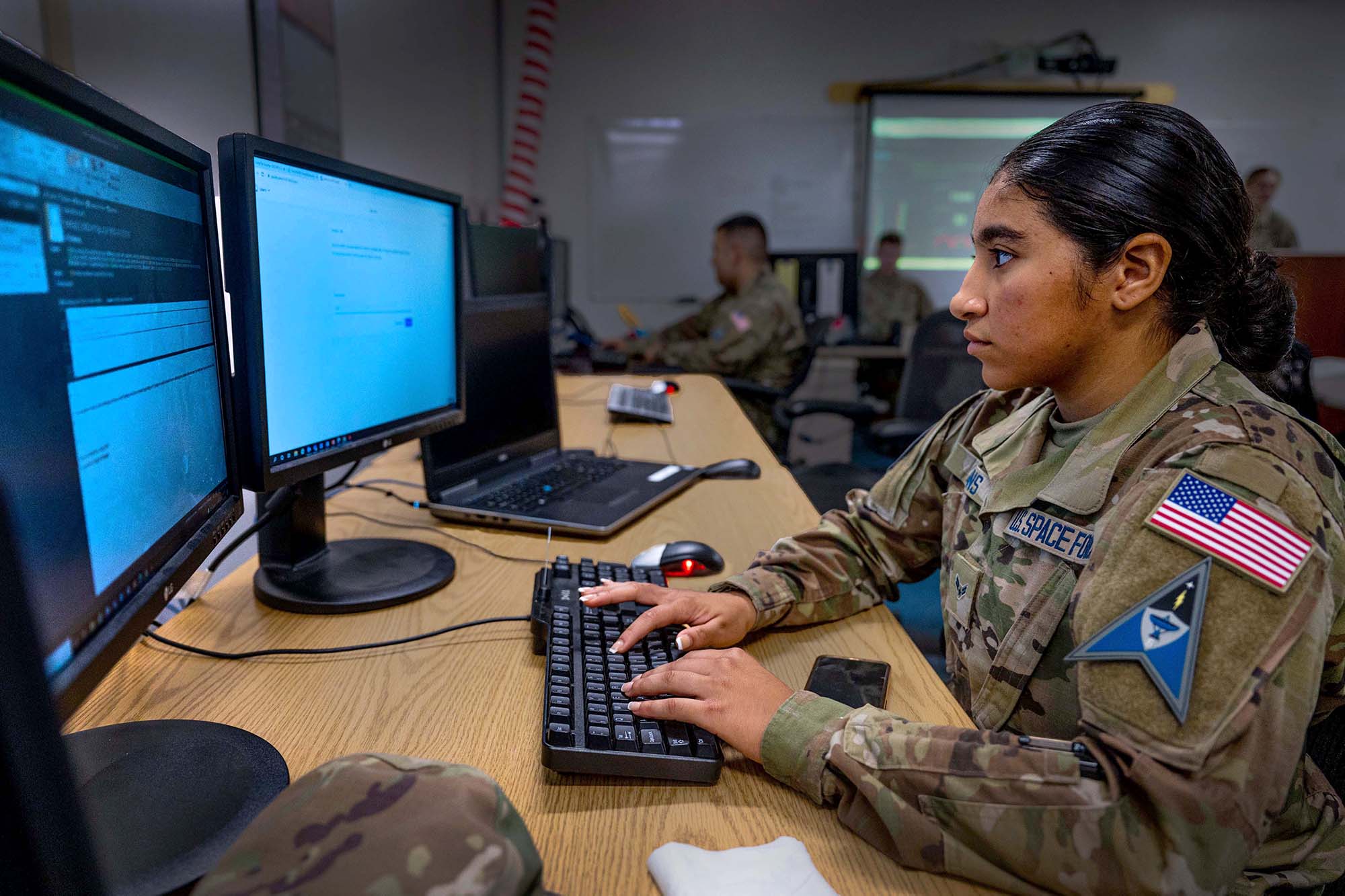House Drive Guardians deal with a non permanent ban on employing generative synthetic intelligence applications and substantial language designs (LLM) for formal functions.
The go, to start with noted by Bloomberg, was declared in a Sept. 29 memo from Lisa Costa, the Space Force’s Chief Technological know-how and Innovation Officer.
According to the memo, obtained by Air & Room Forces Journal, Guardians are forbidden from employing federal government information in generative AI answers except they receive formal approval.
IBM describes Generative AI as plans “that can produce higher-good quality text, illustrations or photos, and other content material dependent on the information they were being skilled on”—platforms these types of as OpenAI’s ChatGPT and Question Sage, a model developed for authorities function by the Department of the Air Force’s former chief computer software officer Nicolas M. Chaillan.

In an interview with Air & Room Forces Magazine, Chaillan argued in opposition to the Place Force’s go, citing concerns about the efficacy of prohibiting an total technological know-how or platform and the likely challenges joined to personnel accessing these platforms on their individual products.
“When people today are banned from making use of authorities products and you are banned from making use of your device (to obtain these platforms), it is going to force individuals to use their particular gadget. People have created particular accounts on the platform, which makes extra hazard. All you’re undertaking when you do issues like this, is the generation of far more shadow IT and a lot more cyber danger,” Chaillan reported.
According to Chaillan, Check with Sage was produced on authorities clouds and manufactured to fulfill all cybersecurity stipulations. He reported in excess of the earlier 6 months, about 500 Guardians utilized the system, with no claimed security incidents. He also said there are presently 10,000 Check with Sage end users in the course of the Division of Defense.
A Pentagon spokesperson reported they ended up not able to confirm the exact range of Check with Sage people, but in a statement, they echoed quite a few of the similar worries Costa referenced in her memo.
“LLMs give excellent guarantee to aid DOD personnel in accomplishing a vast wide variety of tasks, having said that we will have to ensure that delicate DOD knowledge is safeguarded when making use of these kinds of platforms,” the spokesperson stated through electronic mail. “Valid issues have also been voiced about the traceability and validity of answers offered by LLMs.”
Area Drive spokesperson Maj. Tanya Downsworth instructed Air & Area Forces Magazine that Costa’s memo institutes a “temporary, strategic pause to appraise the finest path ahead to align this capability into the USSF mission that shields the knowledge of our services and Guardians.”
She additional that the services will be wanting at threat administration methods and persuade pilot applications to get knowledge to inform choices.
Chaillan, on the other hand, argued any hold off with such a rapidly evolving technologies




/cloudfront-us-east-2.images.arcpublishing.com/reuters/Z4LI7N7I3ZMPFDPHZO7EVI6ASM.jpg)